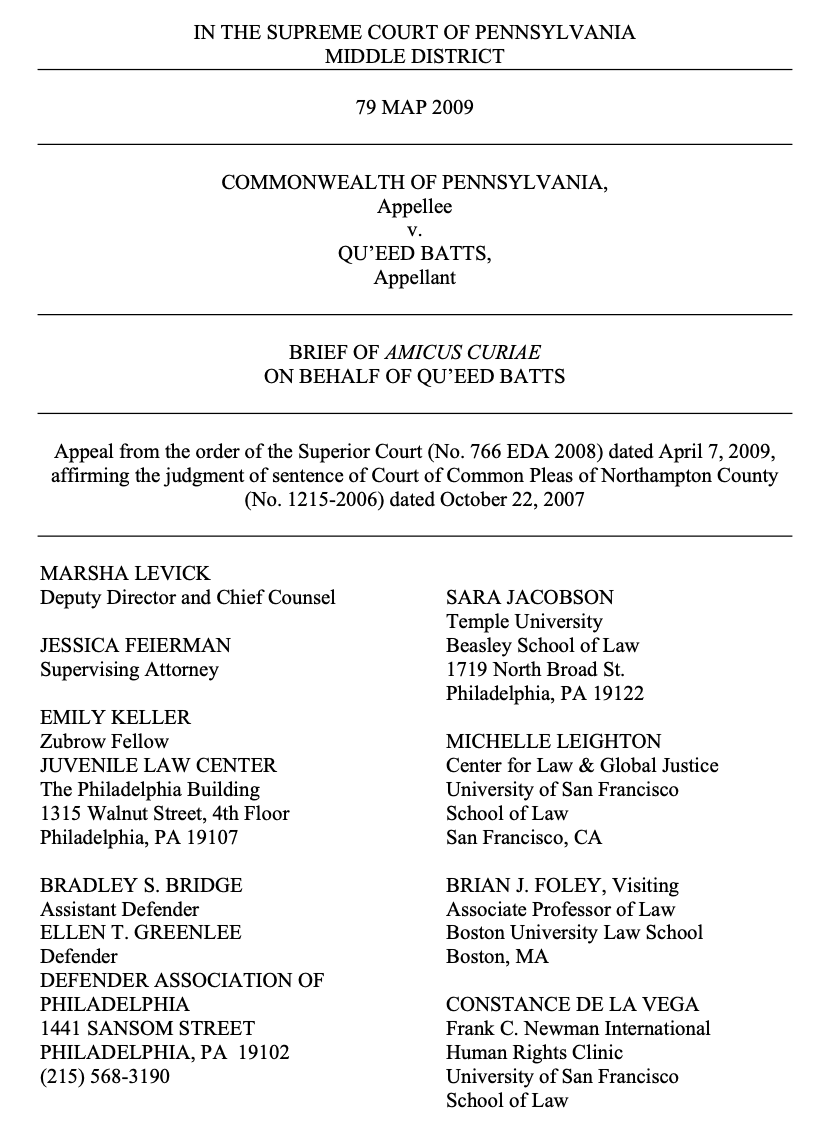
Summary of Argument
Amici submit that a mandatory sentence of life without the possibility of parole for a fourteen-year old youth convicted of first degree homicide violates both the United States and Pennsylvania Constitutions. In Graham v. Florida, the United States Supreme Court held the sentence of life without parole unconstitutional as applied to a juvenile convicted of violating his probation by committing a home invasion robbery, possessing a firearm, and associating with persons engaged in criminal activity. The holding was grounded in developmental and scientific research that demonstrates that juveniles possess a greater capacity for rehabilitation, change and growth than adults. Considering this research in light of the four accepted rationales for the imposition of criminal sanctions – incapacitation, deterrence, retribution and rehabilitation – the Graham Court held that a life without parole sentence served no legitimate penological purpose when applied to juveniles under the age of eighteen. The Graham Court also held that such a sentence was contrary to evolving standards of decency under the Eight Amendment’s cruel and unusual punishments clause, noting that a majority of states prohibited the practice and that, even among those that permitted it, the sentence was rarely imposed.
Graham applies to the sentence challenged here. A life without parole sentence for a juvenile lacks empirical justification in light of the distinctive developmental characteristics of juvenile offenders, and therefore serves none of the traditional justifications for punishment. Striking this punishment is also consistent with longstanding specialized treatment of juveniles under the Constitution.
Moreover, Pennsylvania’s sentencing structure is starkly out of touch with national trends; only three other states nationwide mandate a sentence of life without parole for youth fourteen years old or younger convicted of homicide. Indeed, the constitutional problems with life without parole sentences are heightened in Pennsylvania by the mandatory nature of the life imprisonment without parole sentencing scheme. The sentencing scheme not only fails to address the reduced culpability of adolescents, it actually precludes the judge from taking age into account. Graham rejected such categorical judgments about juveniles.
The international consensus against imposition of life without parole sentences upon juveniles further underscores that the sentence is unconstitutional. International law prohibits the imposition of life without parole sentences on juveniles. Finally, the Pennsylvania Constitution, which is broader than the United States Constitution, barring sentences that are “cruel,” rather than only those that are “cruel and unusual,” also bars such sentences.